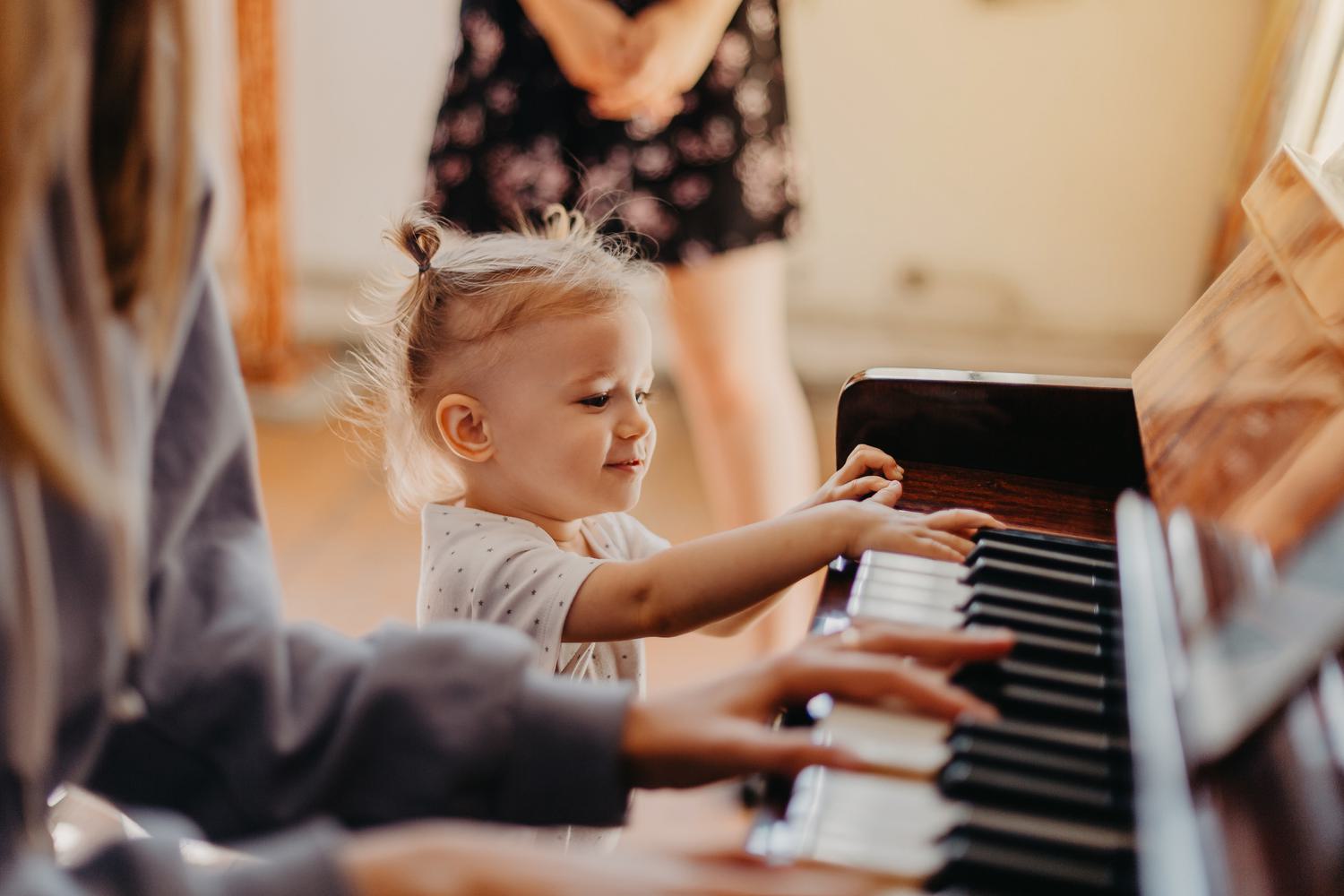Humans instinctively respond to music. Babies are soothed to sleep by lullabies, toddlers will jiggle around and dance to music almost as soon as they can walk, young children delight in singing along to their favourite tunes and no one will ever forget their first concert experience. Music is engrained in every culture and shows up one way or another in our daily lives, but in addition to the total enjoyment music can bring, studies also suggest it is an integral part of our children’s development in ways that go far beyond mastering their Do-Re-Mi’s!
On This Page
How Learning Music Benefits Children
Aside from the obvious point that children are honing a new talent when they learn to sing or play an instrument, fostering an appreciation for music in children from a young age can also enhance certain life-skills which benefit other crucial areas of their development. These include:
- Committing to regular practise instils in children key character traits: self-discipline, perseverance, and patience.
- Learning music involves collaboration and communication: playing as a group is all about teamwork, learning one’s role within the bigger picture and working together to produce the desired result.
- A child will naturally feel proud of having mastered new musical skills through their own efforts and playing or singing in front of an audience is a great confidence-booster.
- Music is a great creative outlet for children and as their skill level advances, they can discover new ways to artistically express themselves.
- Music has been proven to have a positive impact on children’s mental health. Playing and/or listening to music can reduce stress, and studies suggest mental disorders such as anxiety and depression can be effectively managed with music intervention therapy.
- Exposing children to music from a young age can have a positive impact on their overall academic ability: children who sing or play a musical instrument tend to express themselves better, can memorise challenging words and even learn other languages more easily. There is also a strong correlation between music and maths. Children who play an instrument and come to understand beats, time signatures and formulaic progression are activating the same part of the brain that solves math equations.
What is the ‘Right’ Age to Start Learning Music?
Many children will encounter some form of musical education as part of their school’s curriculum. This will cover theory and likely touch on the practice of music. However, if you want your children to delve deeper, you may consider signing them up for extracurricular music lessons.
Because every child is different and learns at his or her own pace, there is no universally correct answer to when a child should start lessons. While it is important to encourage an appreciation for music, some children may naturally gravitate towards it themselves. Continue to expose your children to music regularly but allow them to feel out their own interests too.
Of course, to be able to pursue a career in music, one would ideally start learning music as soon as possible – and certainly before age nine – but for those who simply want to learn to sing or play an instrument for their own personal pleasure, it is never too early nor too late to start.

What Instrument Should A Child Learn?
The piano and violin are the two most common ones to start with, although some children tackle the guitar or ukulele first. The recorder is another popular introductory instrument and is frequently incorporated into schools’ curriculum as part of their early music education. Certain brass and percussion instruments are best left until a child is a little older!
Choosing the right instrument can also depend largely on the physical development of the child, i.e. their finger strength and length, body strength and muscle mass. The school’s music teacher will be able to advise when your child is ready to learn a particular instrument.
Every parent wants to help their child discover and develop his or her talents, however in the case that your child is not a natural musician, they can still be given an early grounding in music that will allow them to enjoy and appreciate the art.
Group Classes vs. Private Classes
If your child has expressed an interest in extracurricular music lessons, the first order of business is determining whether they want to join a group lesson or enrol in one-on-one sessions. We list the pros and cons of each below:
Group Classes
Pros
- Group lessons are often cheaper than private lessons.
- Playing with peers can be a great motivator for some children.
- Children can partake in community recitals.
Cons
- Classes aren’t tailored to the individual and children who need extra help may fall behind.
Private Classes
Pros
- Students can move at their own pace.
- Lesson plans are customised to suit the individual student.
Cons
Can be very costly.

What Can Parents Do?
As the saying goes: monkey see, monkey do! Generally, it is recommended that parents expose their children to music early on – and this is most easily done by sharing your own appreciation for music with them. Dance around the kitchen with your child as you cook dinner, listen to music in the house or during car drives, take them to concerts, consider enrolling your toddler into an early music and movement class and always encourage any sign of interest they show in the practice! There are a few community ‘Mummy and Me’ music classes for toddlers and young children – these give children a chance to experiment with some age-appropriate instruments.
Creating fun family memories around music means when it does come down to your child learning an instrument or attending music lessons, it won’t be seen as a dreaded chore but rather something they are excited about pursuing.
Cayman's Music Schools
Regardless of whether a child has the potential to pursue music professionally, or simply wants to learn for their own personal enjoyment, learning music can only ever be beneficial.
Luckily for budding Cayman Mozarts, there are a few trusted musical tutors and dedicated music schools on Island that offer lessons for a range of instruments and musical aptitudes.





